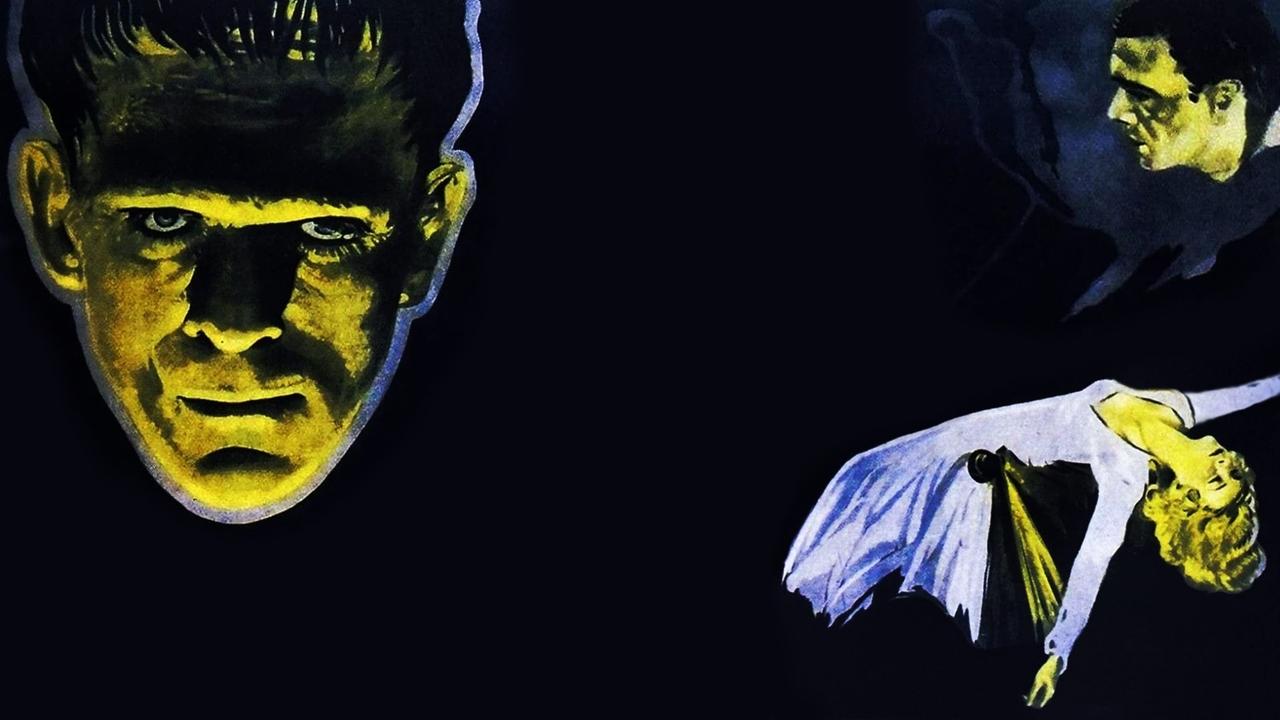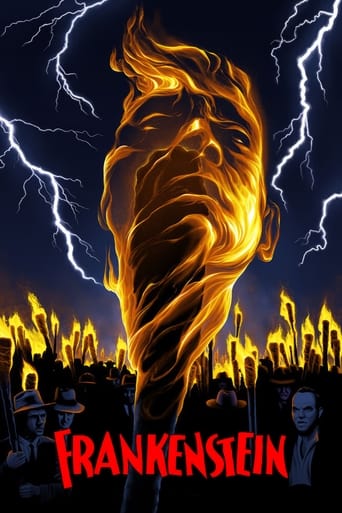Marketic
It's no definitive masterpiece but it's damn close.
Borgarkeri
A bit overrated, but still an amazing film
SparkMore
n my opinion it was a great movie with some interesting elements, even though having some plot holes and the ending probably was just too messy and crammed together, but still fun to watch and not your casual movie that is similar to all other ones.
calvinnme
... how prescient of Universal Pictures! Well, actually, no. And actually, if you have read the novel, this film only loosely resembles it. For some reason Victor Frankenstein is "Henry", and John Bole, a family friend, is named "Victor". For some reason and background never given "Victor" is in unrequited love with Elizabeth. There is no motivation given here for Dr Frankenstein wanting to give life to a dead being like there is in the novel. And the monster he creates is mute and without reason, also unlike the novel. And yet it all works. Even now, 87 years after it was filmed it is a fun watch, not the shocking one it was in 1931, and we probably have Mel Brooks to thank for that, but that's another story. The big news here is the direction. James Whale, in one of the few smart moves Universal made in the early 30s, was given great authority with what projects he took on to direct and how he executed his job. What he produced is an artistic masterpiece. Why is all of that odd electronics in Dr. Frankenstein's lab? I am an electrical engineer and I don't know. Why did Whale decide to make this film "present day" when almost every other filmed version of Frankenstein is set in the 19th century? Again, I don't know, but it works. It allows Mae Clarke as Elizabeth to be dressed to the nines in the fashions of the day, and because "the townspeople" themselves are not yet living in modern times, it allows the settings to be gothic. There are just some unforgettable images - the townspeople after the creature as hundreds of torches that spread into the night, the old decrepit windmill almost as a distinct character in the film as the monster's last refuge, the peasant carrying his dead daughter into the celebration of Dr Frankenstein's impending wedding, the monster and the doctor facing each other with the look on the monster's face that says "you got me into this and you are getting me out - we are in this together".And Whale does all of this in 70 minutes with minimal dialogue and maximum use of atmosphere with an ending that is left open and is definitely precode. Highly recommended.
merelyaninnuendo
FrankensteinA beautiful little kid playing with a not-so-human stranger and welcoming him on her territory is probably one of the most innocent scenes I have encountered in the cinematic history (the writers speak more than they say here). Frankenstein conveys surprisingly more on moral term and less on its clichéd generic characteristic which is the key here that allows it to enter into the bigger picture. James Whale projects the on-paper vision with a great conviction but fails to offer on the gripping side to it by stretching some of the work here (needs better editing and it comes off more disappointing considering its runtime) resulting into an overlong sequences even though being only of 70 minutes. Apart from that, Frankenstein is more satisfying than horrifying, more on morality and satire than entertainment and more human than any other.
Artur Machado
For one of the first talked movies, the performances are very reasonable, but who steals the show is really 'the monster' Boris Karloff with his image and interpretation. With little more than 1 hour in duration, there are few dead moments and the film manages to grab attention from beginning to end mainly for not losing time with secondary issues unrelated to the plot, but also due to its theme and its victorian-ghotic atmosphere. Unfortunately near the end there are some plot holes: how did that man knew that whoever killed the little girl had been the monster?, how come the little girl could not swim if she lived near a lake or was the lake so much deep so near the shore that she could not reach it?, how did the monster passed unnoticed by the village then found and entered the house of its creator, no less? But apart from these cuts in the narrative (that's me being picky, I know) and the very last scene that does not fit the atmosphere of the movie, this film is a classic to be treasured and respected. So I'm really glad it's still very alive among the cinephile community so many years after its creation :)
tankace
Frankenstein of 1931 is one of the most iconic horror film and many of the tropes we take for granted ,like a mad scientist in white,Gothic image, the hunchback sidekick, wild mobs and the look of the creature ,all of them have taken cues from this film. Credits where credits do to Boris Carloff whose acting really sell the film and make you believe that what you see is real, with his movements and facial expressions. Also the reactions of the rest of the cast help to the selling of the illusions very well.And the scenery is very well made. And here is were I will become critical to Frakenstein ,to the readers be gentle.DISpute the status of classic the film has(rightfully so) ,we have to be honest back in the thirties was scary but now it doesn't have the same impact as the next generations we have grown accustomed to it. To add to that scenes that ones scared the crowd now there are two reactions ,"wait I didn't get it?" and two "That was funny". Also what hampers the film more is its short duration, clocking only one hour and a quarter, so the building up of the tension it isn't fully realized. Finally my biggest issue with the flick is who must it differed from the source material making it completely different from the original book of Mary Shelley. The ironic part is that the film was one of the starting points of Gothic Literature and the film similarly was one of the pioneers of this imagery in films. I am OK with the creating freedom for adaptations ,but after a certain point ,my tolerance is used up.In the end ,I see and I knew before I watch the film why it is considered a classic ,however this shouldn't make any product immune to well thought critic for its flaws, which don't diminish its quality, but show what to do better the next time.

